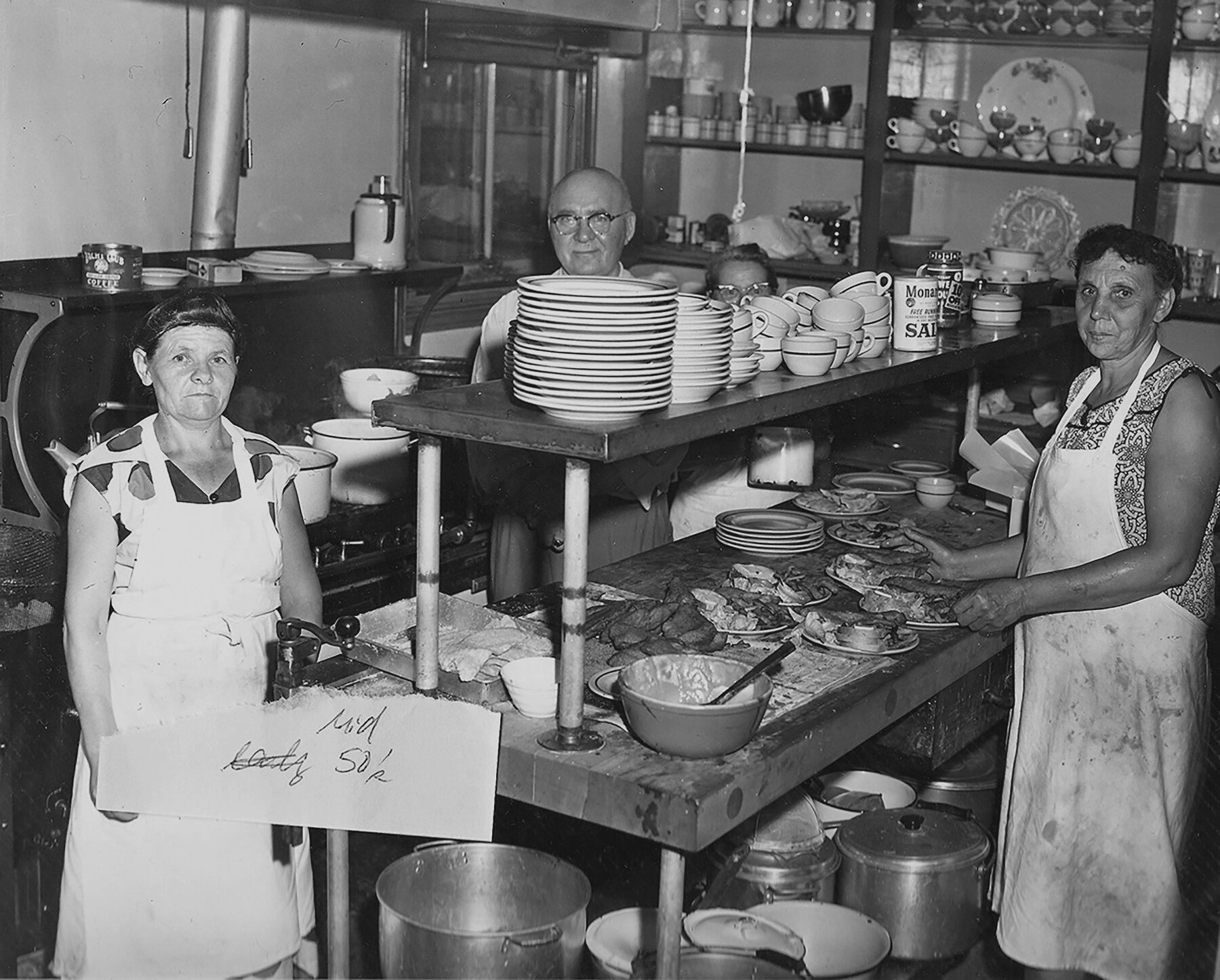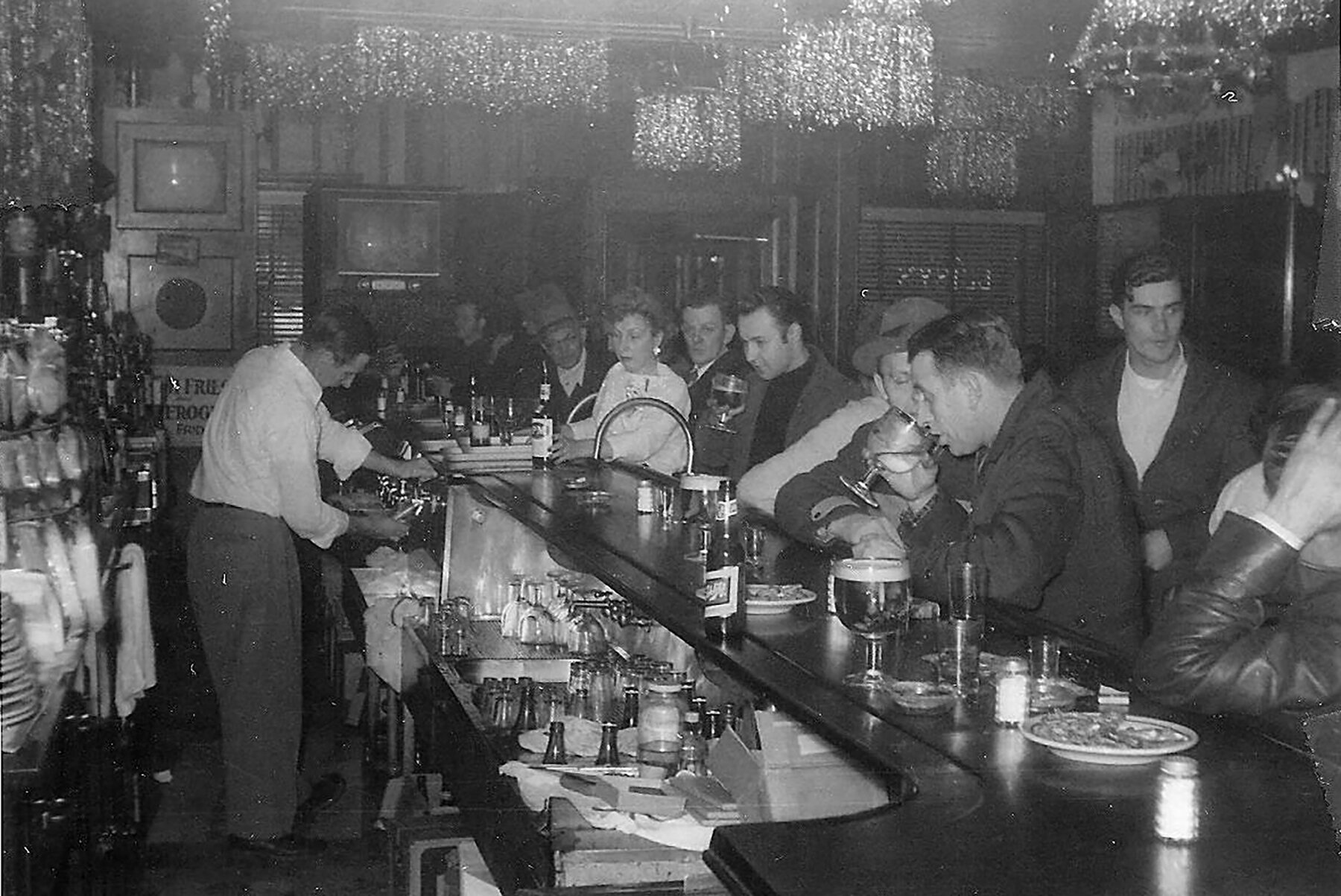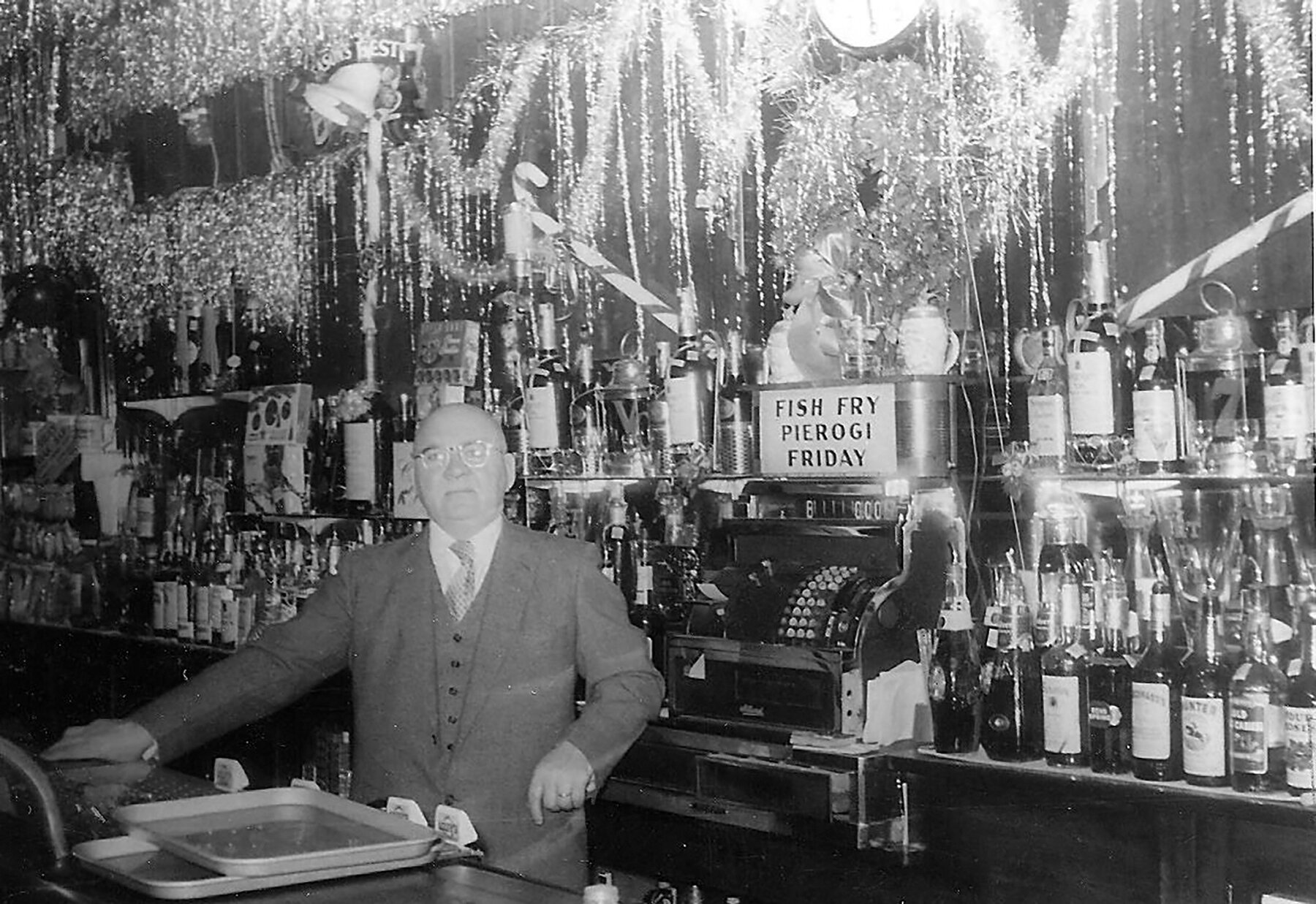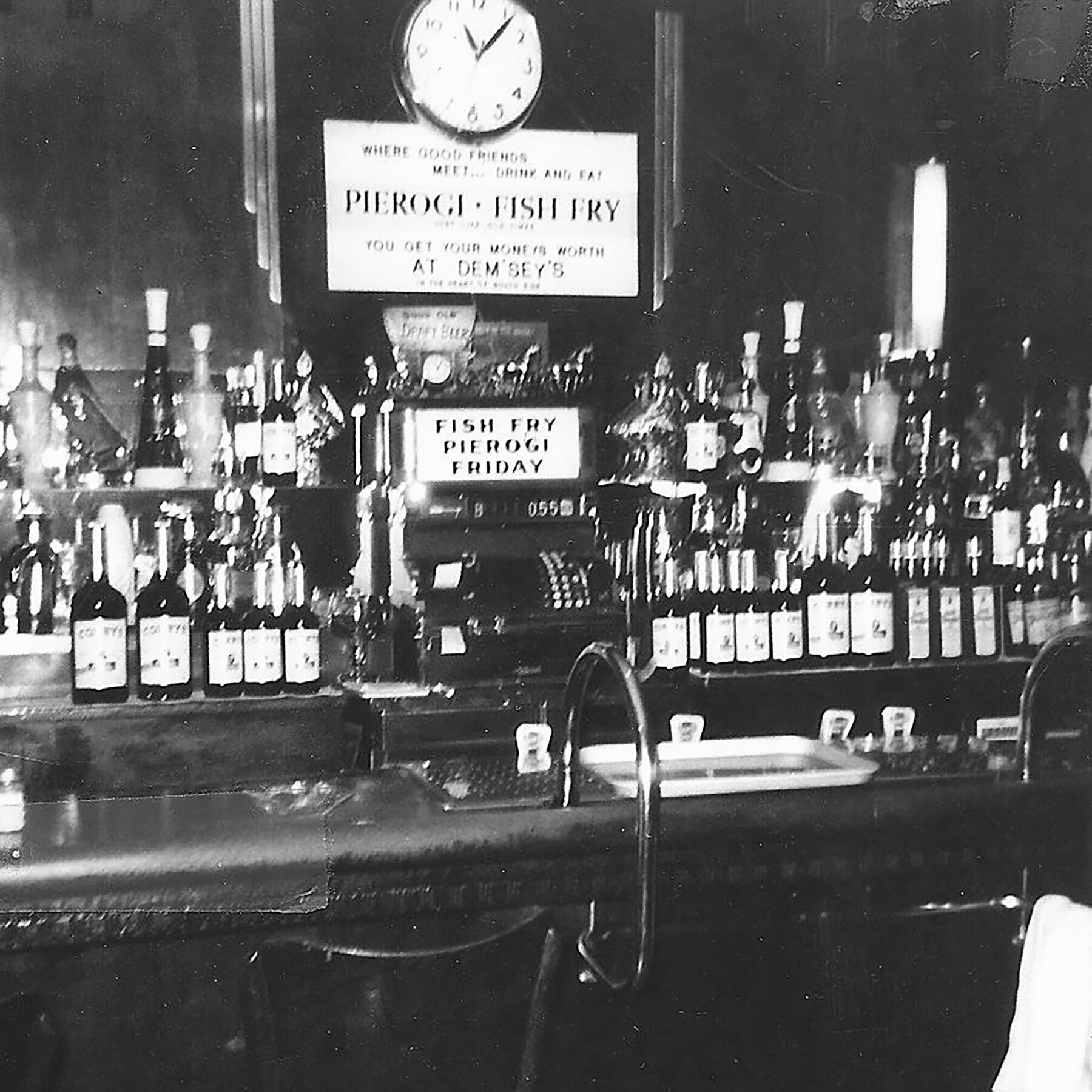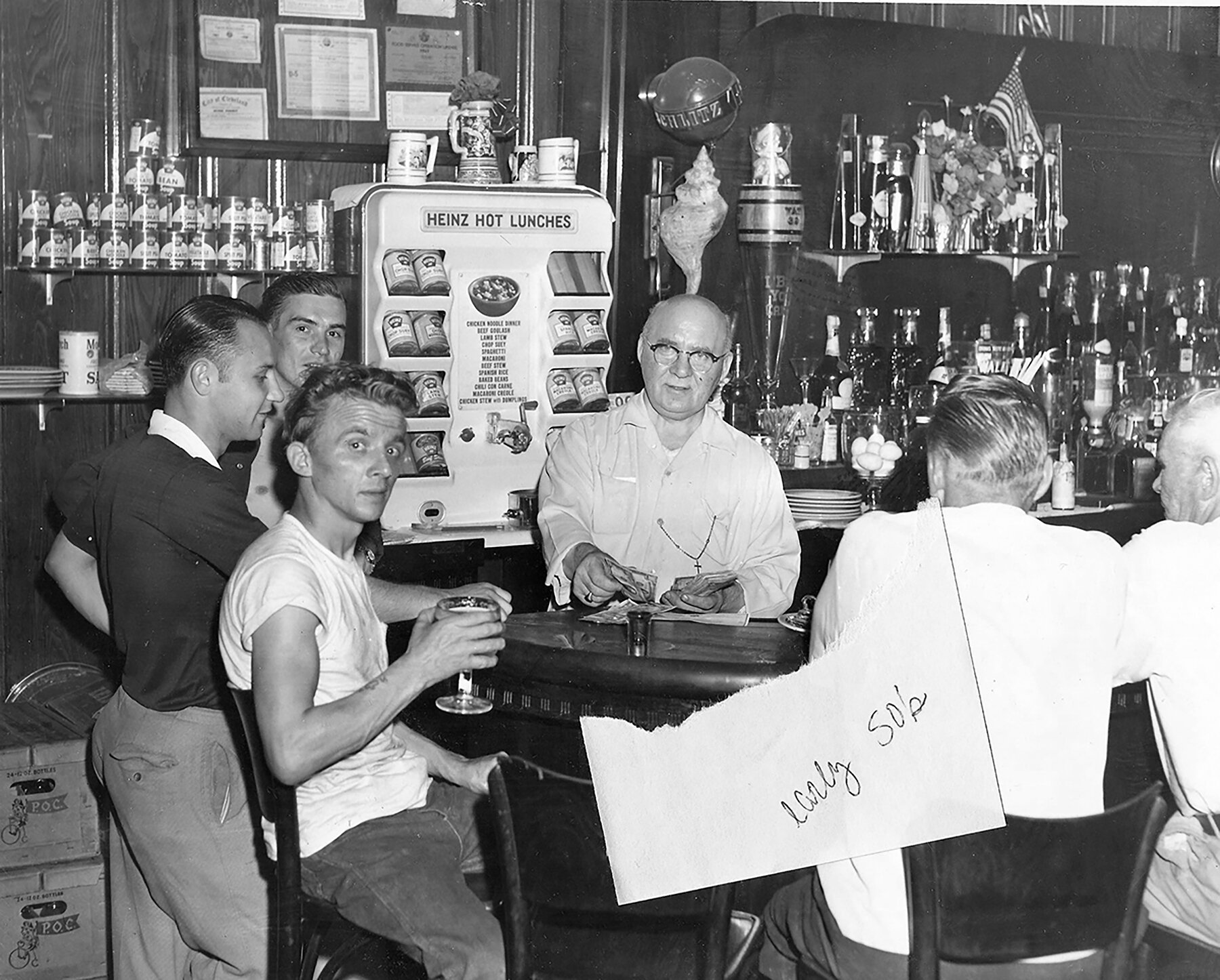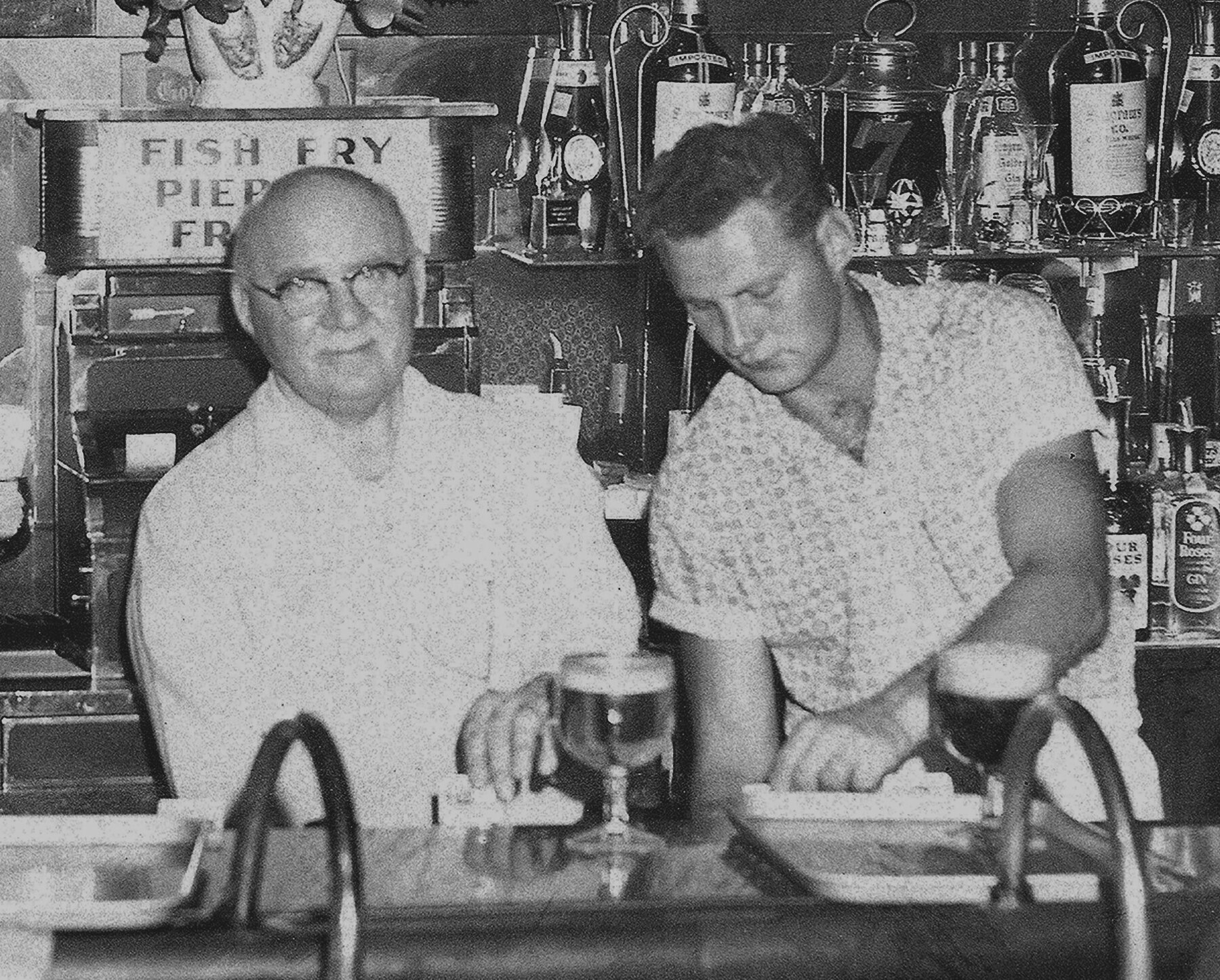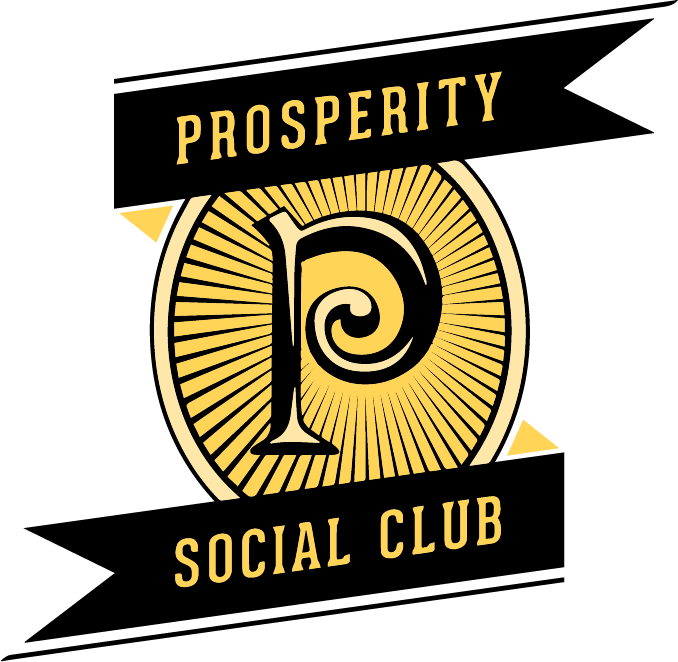
Prosperity Social Club
“The Clevelandest Bar in Cleveland.”
In continuous operation since 1938.
With its retro-style atmosphere, cool vibe, eclectic clientele and an unpretentious attitude, Prosperity Social Club is truly a Cleveland experience! Prosperity offers a sophisticated, tavern-style menu that is vegetarian friendly, and an array of craft beers and libations.
Residing in an original 1938 barroom, Prosperity Social Club is open to the public, being a social club only in a figure of speech, behavior and attitude. Art Deco influences, dark chestnut walls and vintage beer memorabilia recall a bygone era. During the warm weather that Clevelanders crave, a retro-style, vacation themed patio provides an urban oasis for leisurely cocktails and outdoor relaxation.
Our History
Before it was Prosperity Social Club, the business was Dempsey’s Oasis from 1938-2005. At a celebration event, we invited the Dembrowski Family, who had owned and operated Dempsey’s Oasis, to join us in the festivities. Also in attendance was Cleveland State University’s Center for Public History + Digital Humanities conducting on-site oral histories to be archived in the Cleveland Regional Oral History Collection.
The entire Dembowski clan came to celebrate, share stories and reminisce about the rich history of the neighborhood, growing up in the business, how their Dad/Grandfather (Stan Dembowski) started the place, how their Mother/Grandmother cooked and cleaned, historical events throughout the years and what the business was like back in the day.
We learned a few things that day: prior to starting Dempsey’s Oasis, Stan Dembowski owned a deli two doors down, where he bootlegged beer and gin during Prohibition. The business prior to Dempsey’s Oasis was called Hot Dog Bill's, which served hot dogs out of the front window. Stan Dembowski purchased the property in 1938 and the business was named Dempsey’s Oasis Nite Club.
“Prohibition ended in 1933 and Dempsey’s Night Club opened for business in 1938. Leisy’s beer kept the tap flowing. The ‘Night Club’ name was appealing at the time because it was not socially acceptable for women to be seen in a ‘bar’. The words ‘Night Club’ gave the impression to dress up in Sunday go-to-church clothes, so he later changed the name to Dempsey’s Oasis Tavern to appeal to a wider audience. After all the south side, Tremont, was a working man’s neighborhood for those who toiled in the nearby steel mills. My dad built his business by cashing payroll checks and serving 16 oz. fishbowls of beer, with various liquors and wine at a very good price. Sometime afterward he placed salty pretzels and cheese corn on the bar and tables so the guys would stick around and have another boilermaker (shot and beer). Many a man would crack a raw egg in their fishbowl for 5 cents more, supposedly to put a little more ‘lead in their pencil.’ After the Second World War, dad added fish fries and homemade pierogis on Fridays only. He also provided live entertainment (polka bands, musical shows and comedians) on weekends where they played in the back room on a small stage.”
—Richard Dembowski, son of Stan Dembowski
“Prohibition ended in 1933 and Dempsey’s Night Club opened for business in 1938. Leisy’s beer kept the tap flowing. The ‘Night Club’ name was appealing at the time because it was not socially acceptable for women to be seen in a ‘bar’. The words ‘Night Club’ gave the impression to dress up in Sunday go-to-church clothes, so he later changed the name to Dempsey’s Oasis Tavern to appeal to a wider audience. After all the south side, Tremont, was a working man’s neighborhood for those who toiled in the nearby steel mills. My dad built his business by cashing payroll checks and serving 16 oz. fishbowls of beer, with various liquors and wine at a very good price. Sometim afterward he placed salty pretzels and cheese corn on the bar and tables so the guys would stick around and have another boilermaker (shot and beer). Many a man would crack a raw egg in their fishbowl for 5 cents more, supposedly to put a little more ‘lead in their pencil.’ After the Second World War, dad added fish fries and homemade pierogis on Fridays only. He also provided live entertainment (polka bands, musical shows and comedians) on weekends where they played in the back room on a small stage.”
-Richard Dembowski, son of Stan Dembowski
